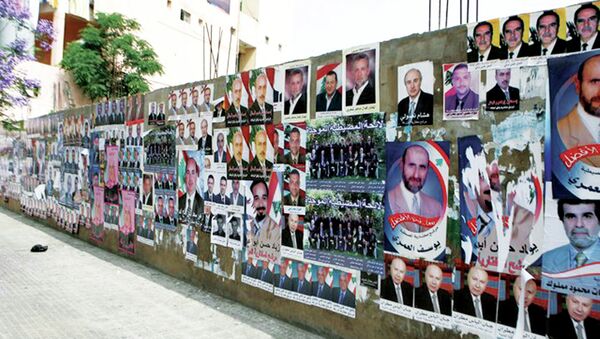Former Lebanese President Michel Sleiman’s last term ran out in May of this year. Around that same time, Lebanon attempted – and failed – to elect a new president, after none of the candidates manages to secure the necessary amount of votes. And boycotts by one of the larger parliamentary blocs meant the 13 subsequent attempts to elect a leader were unsuccessful as well, resulting in endless postponement of the vote. Five months after the end of Sleiman’s term, Lebanese lawmakers agree on just one thing – to keep extending the parliament’s mandate until 2017 and hope for a satisfactory compromise along the way.
It Was a Good Plan…In Theory
A state uniting polar opposites is no extraordinary feat for the Middle East, but Lebanon’s physical border with Israel and Syria as well as its historical ties with the latter have put it under a lot of pressure. Add to that a Civil War that raged in Lebanon for sixteen years, sectarian clashes and general unrest — and the idea of a new government representing all sides begins to sound like the perfect solution. Each confessional group would be fairly represented in the new parliament, giving each equal political power with a view to embrace Lebanon’s shift towards an increasingly ‘Arabic’ identity. Christian, Sunni and Shia Muslims all got a fair stake in the machinery of Lebanon’s new government under the historic Accord. When Washington, Damascus and even Tehran joined forces in the pursuit of compromise, they managed to ink the Taif Accord, largely facilitated by active mediation by Saudi Arabia. The complex electoral engineering behind Lebanon’s new power sharing arrangement was hardly novel, but neither was its inevitable failure.
Even if the external players – the same ‘do-gooders’ that reluctantly watched Lebanon’s domestic bloodshed for almost two decades – had respected their part of the deal, the math of the country’s new decision-making formula simply didn’t add up.
Two equally powerful groups could never attain national unity unless they accept and abide by the concept of political give and take. Which they did not. Ironically, the fragile boat of Lebanon’s infant democracy hit the Washington-conceived rock of gerrymandering. There were two possible ways out of this political impasse: either a strong President aware of the need to compromise in the name of national political prosperity or an amended electoral legislation, which would not allow for re-drawing constituencies to the advantage of a specific political party. Good news — the amendments are in the making, bad news – there is no way to pass them until a new President is elected with the power to form a new parliament.
No End in Sight
Lebanon’s shaky arrangement was put into effect nearly a quarter of a century ago – and since then, not much has changed in the region. Washington is still interested in having no military threat on the border with Israel and so is Saudi Arabia, which also happens to be the single most powerful political trendsetter in the region. This means that Lebanon’s future depends on Syria and Iran. And both the dragged out deal between Iran and the West over Tehran’s nuclear program and Syria’s civil unrest are being used by Lebanese lawmakers as reason enough to keep a dysfunctional government in play. Which is tantamount to saying Beirut will not be enjoying political peace in the near future.




